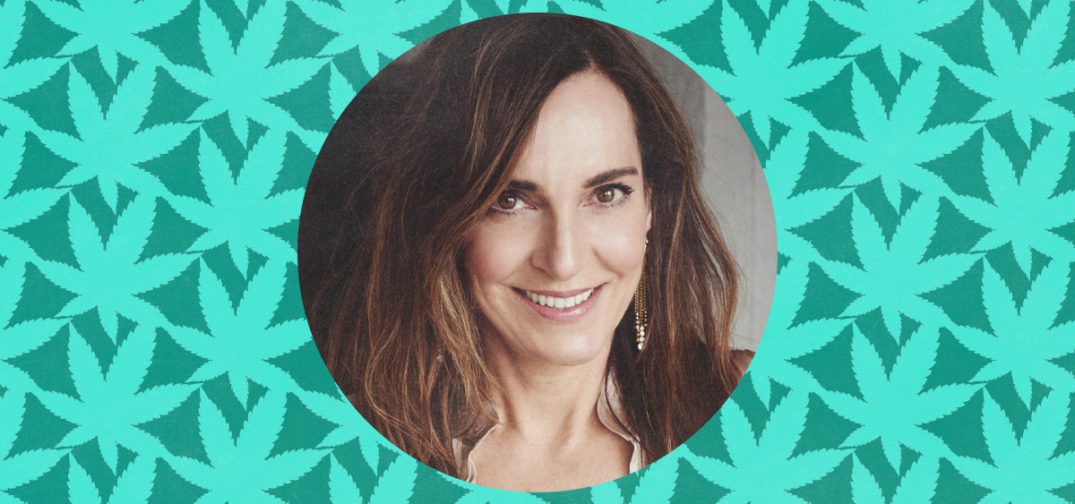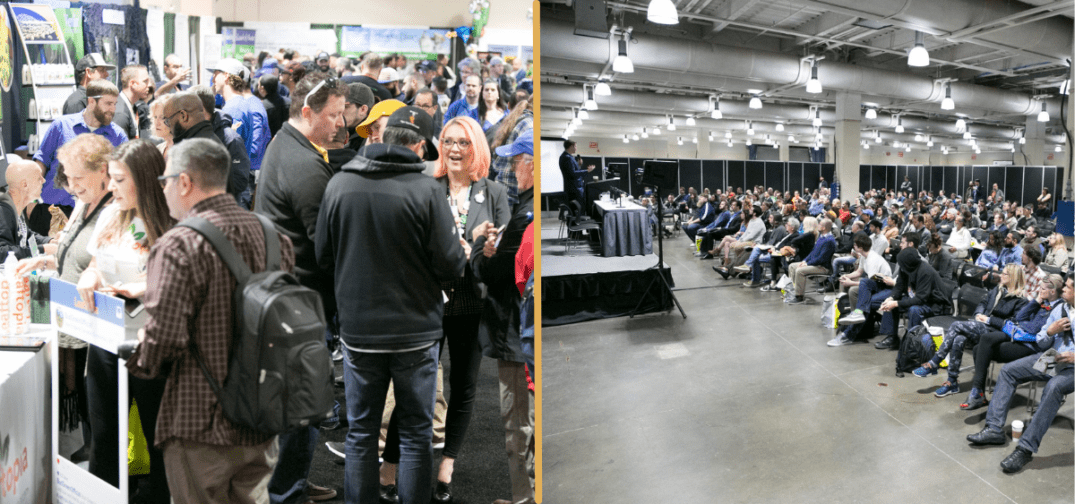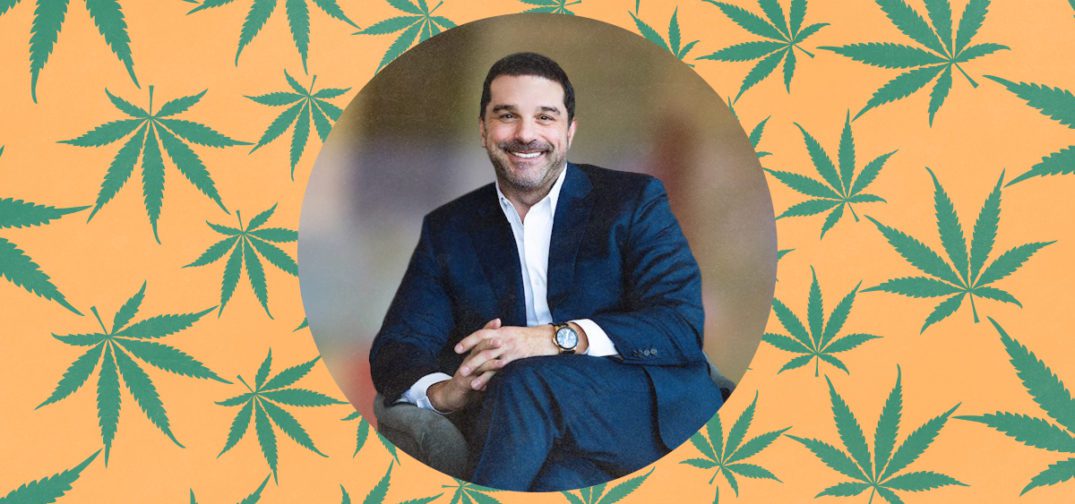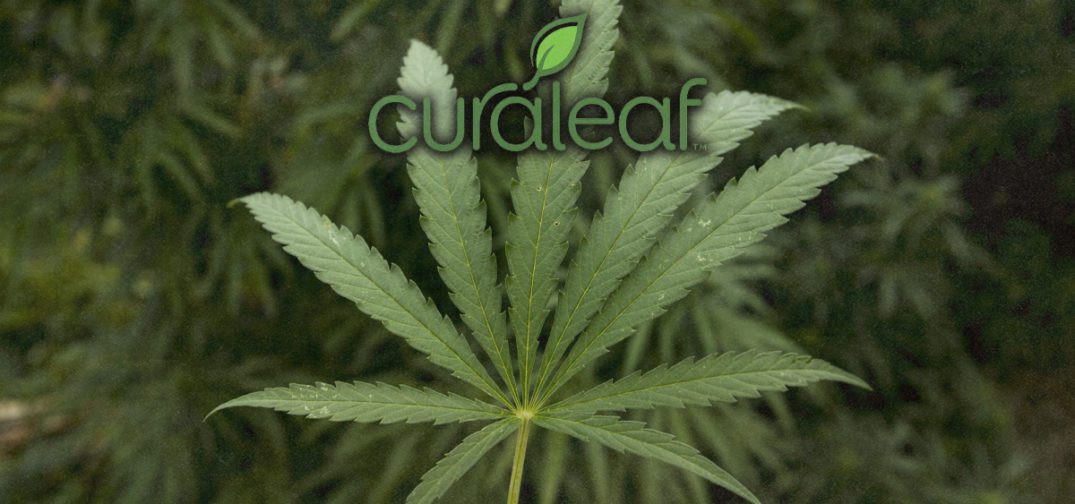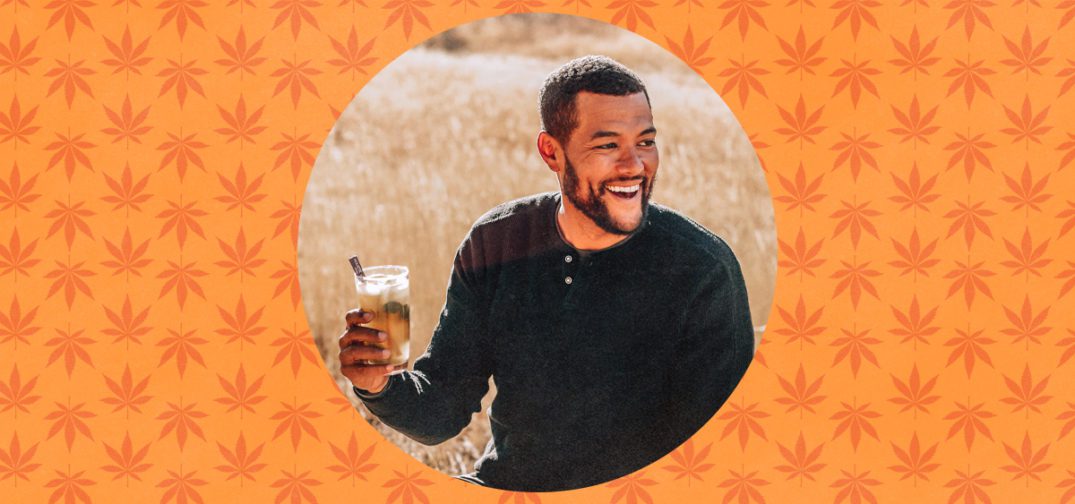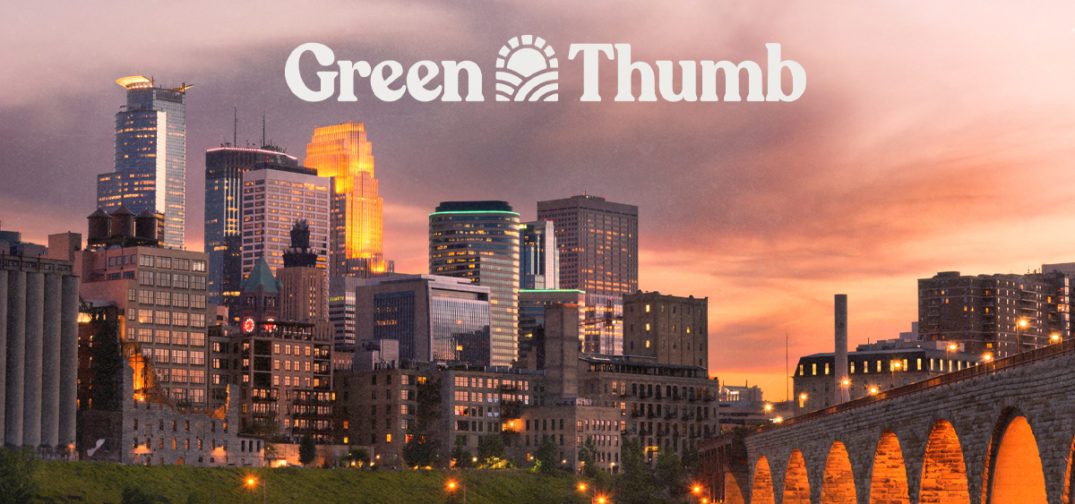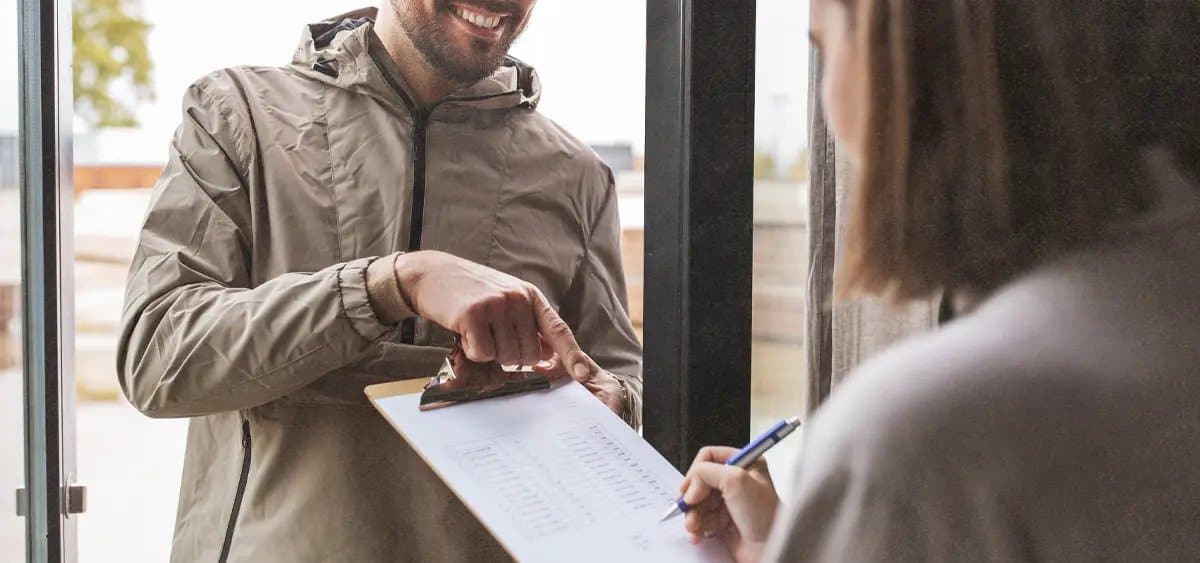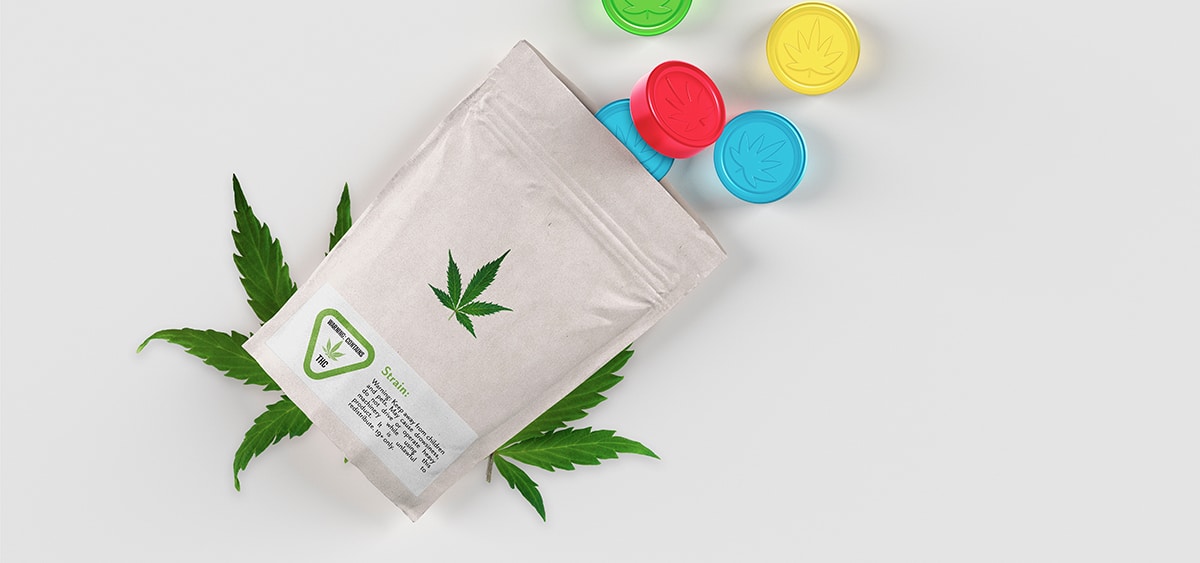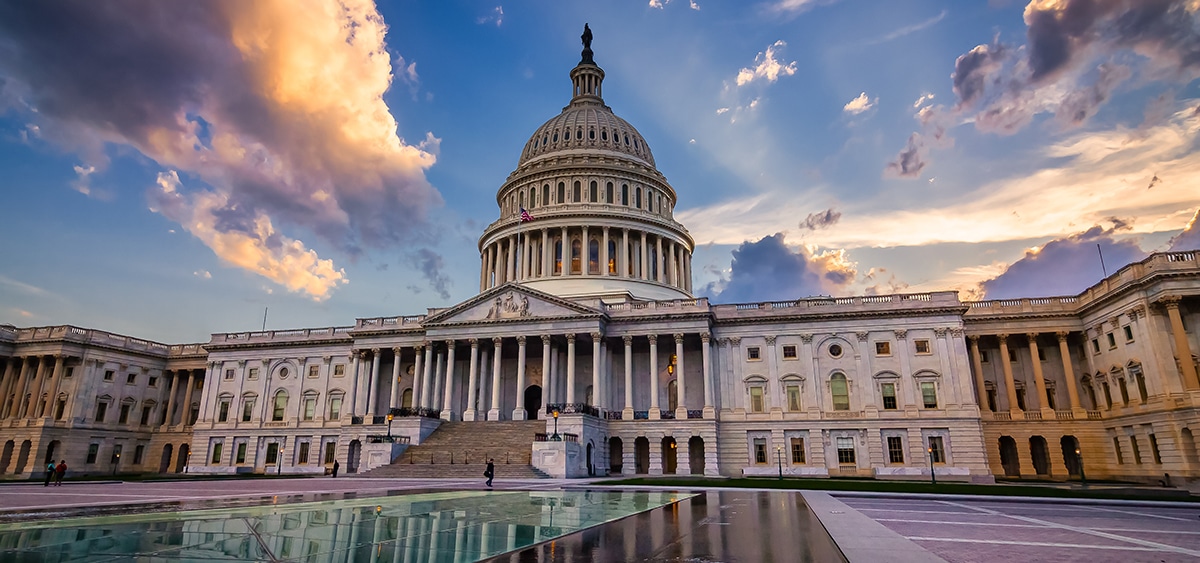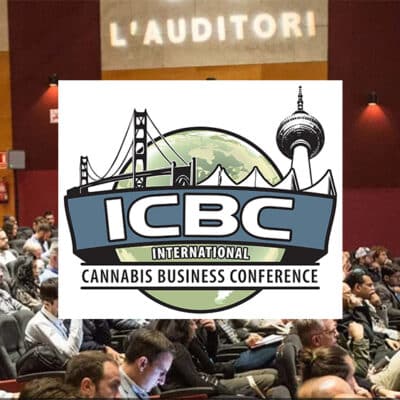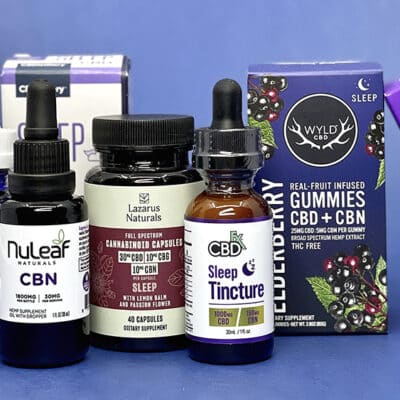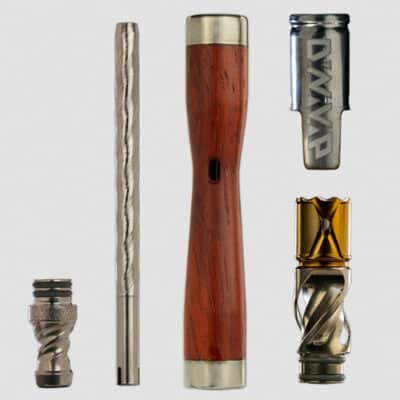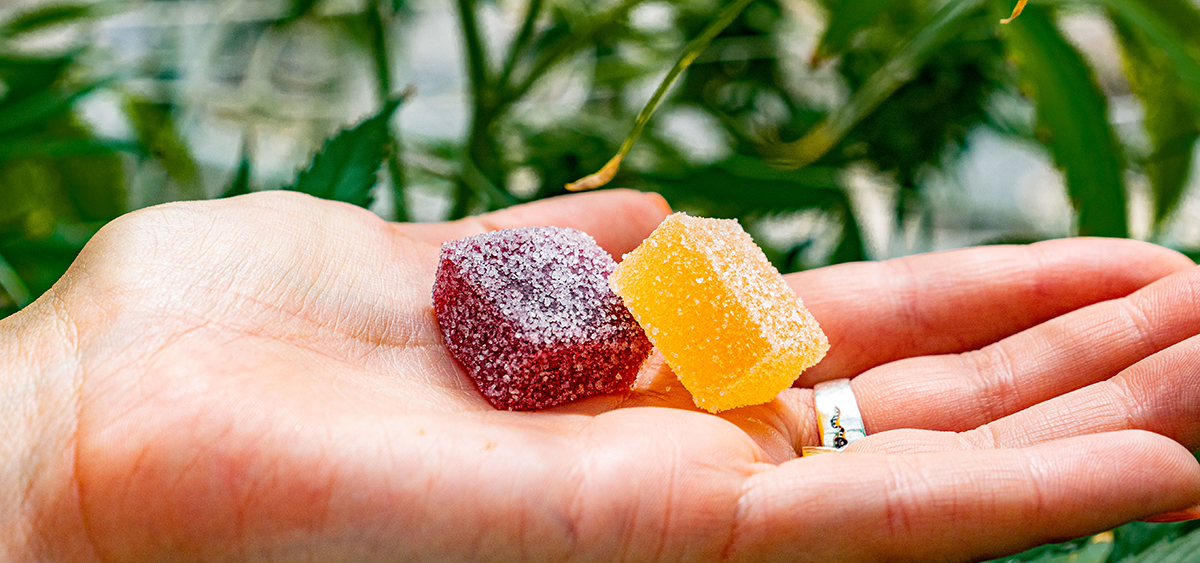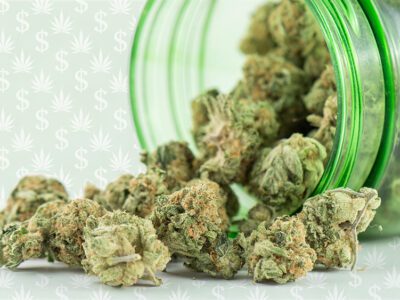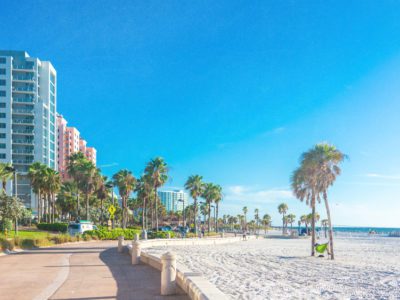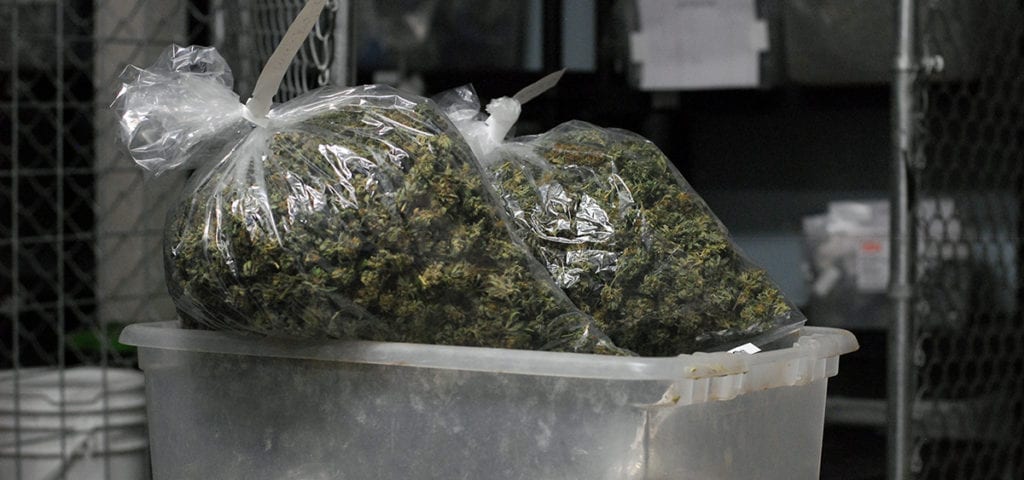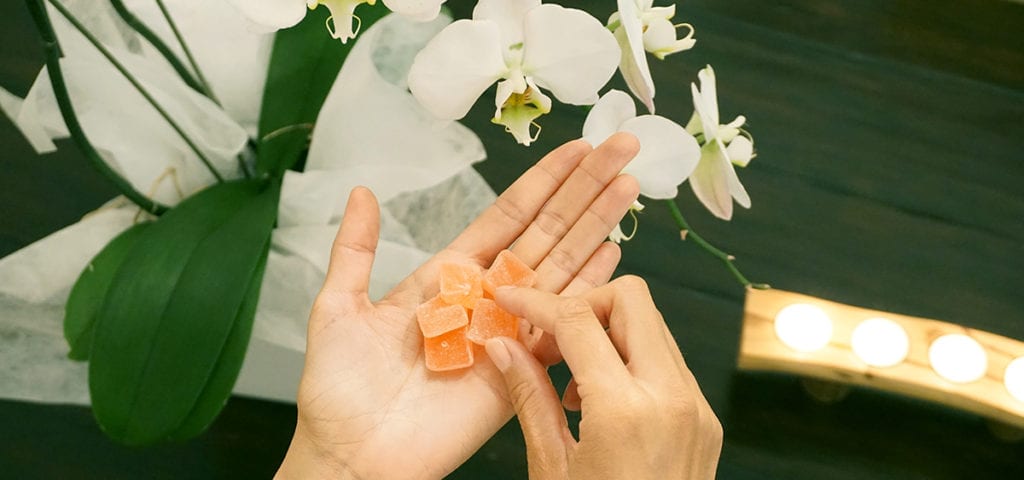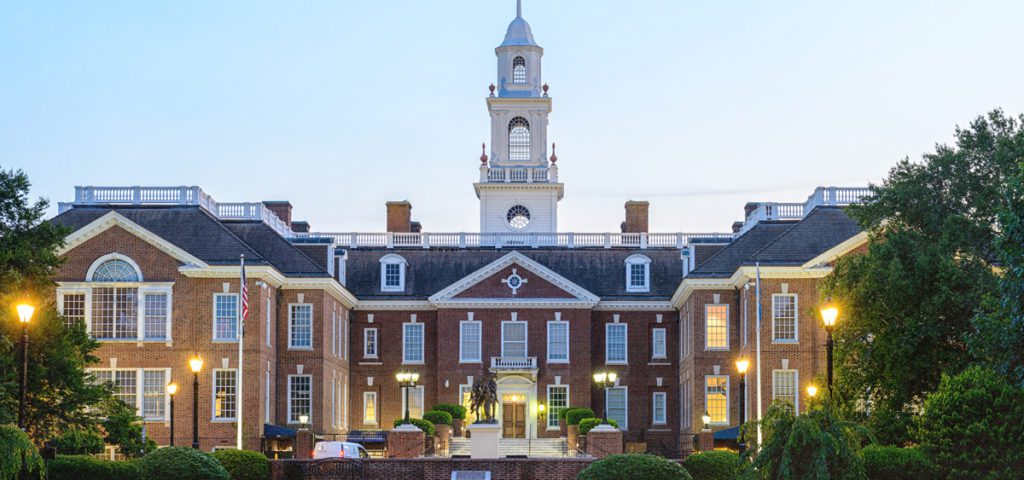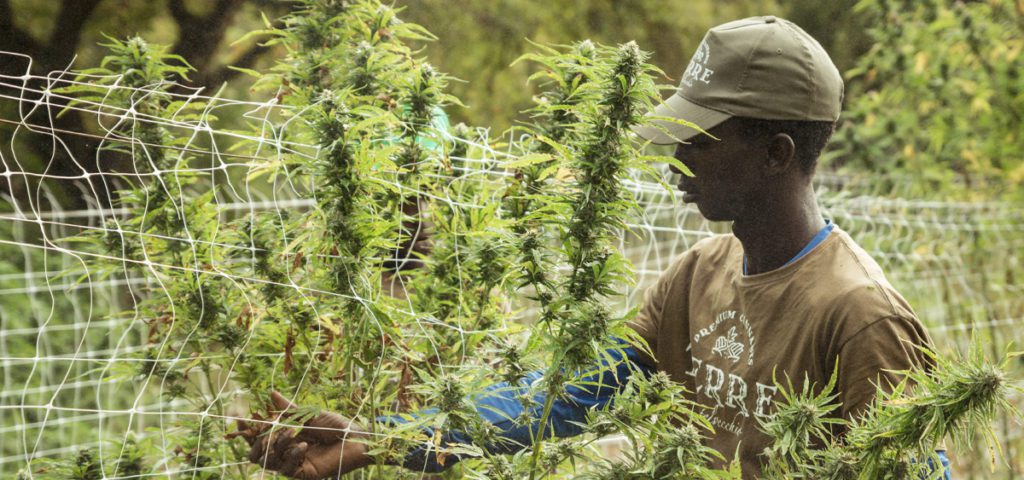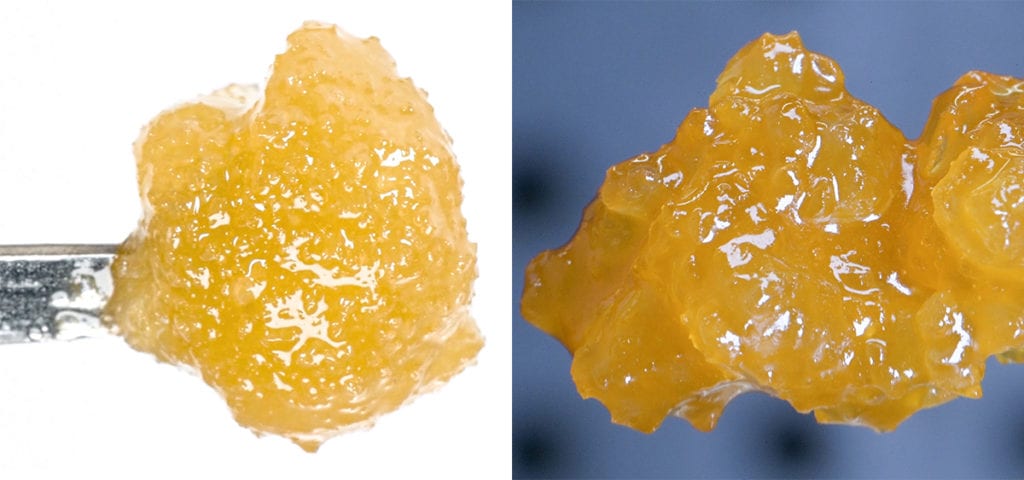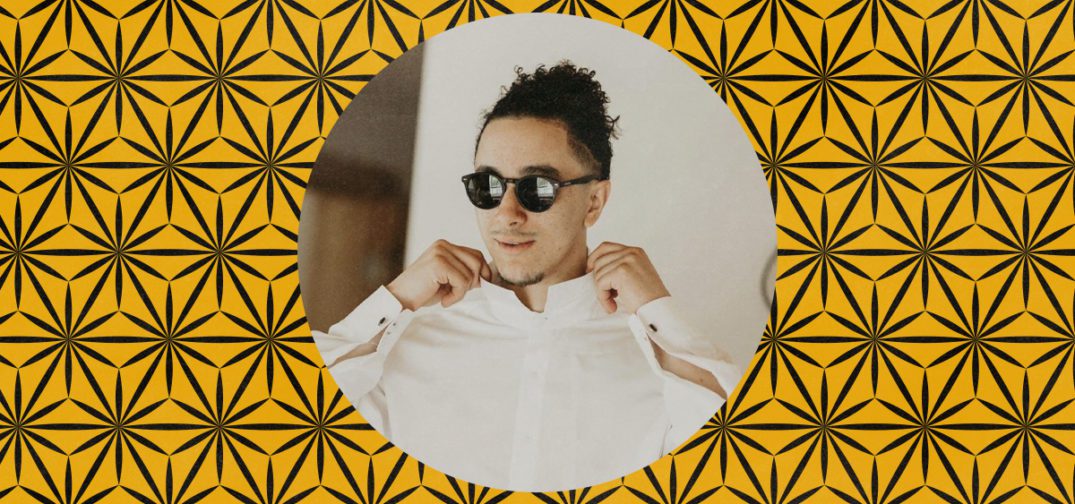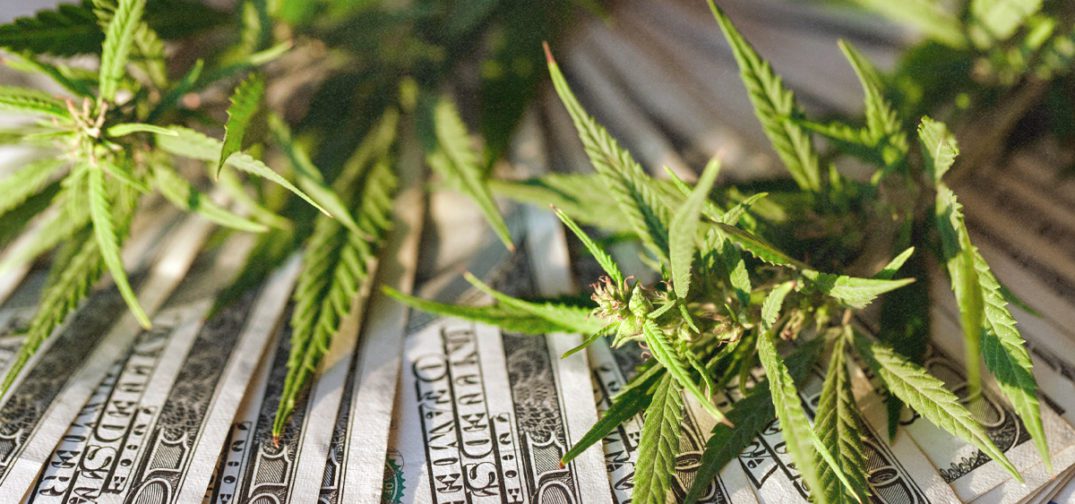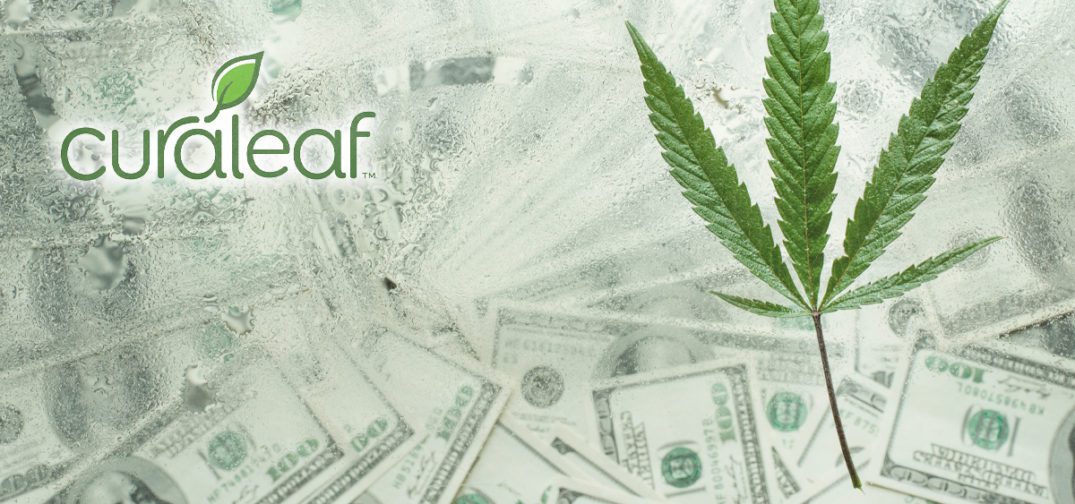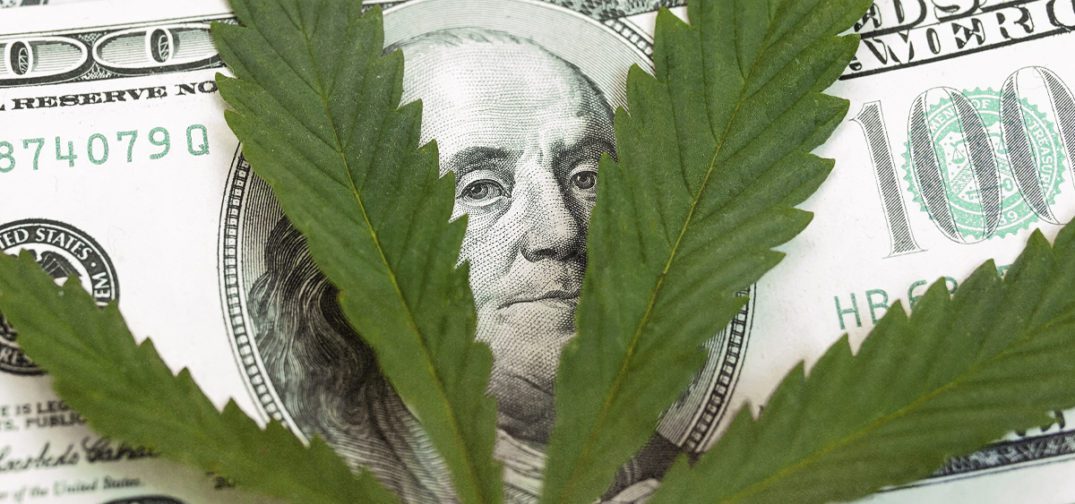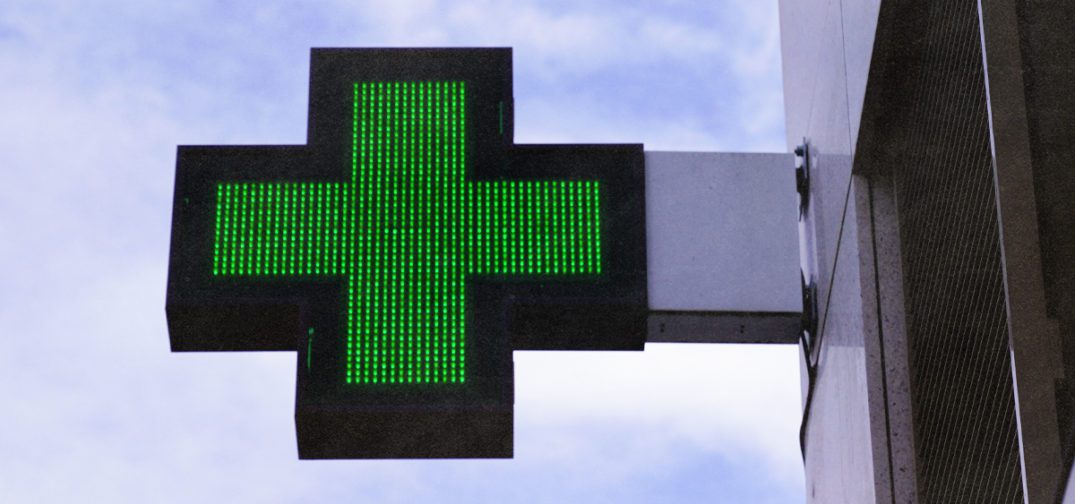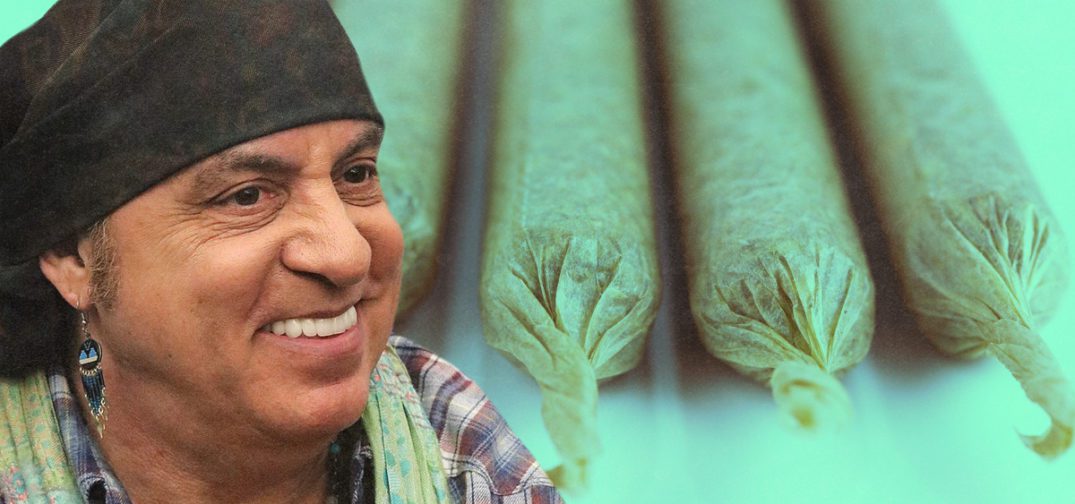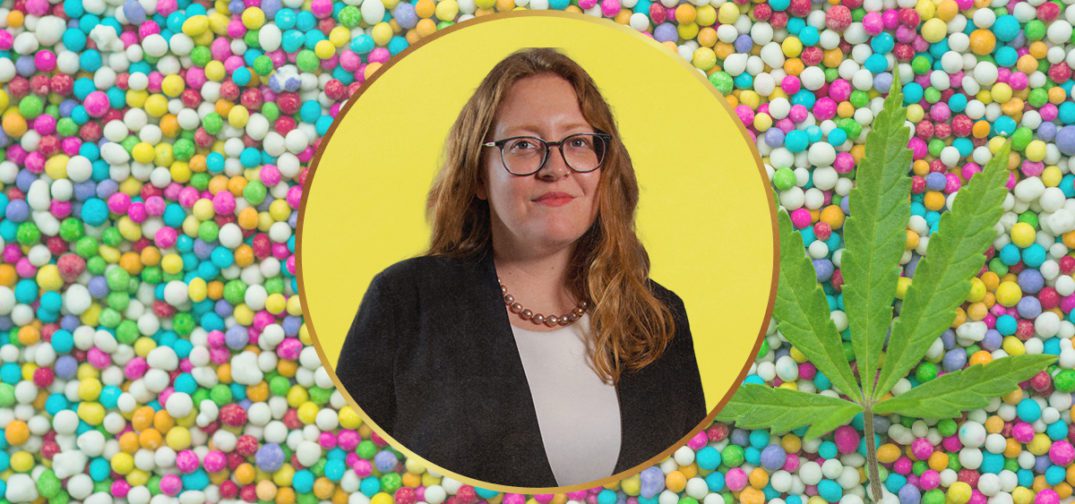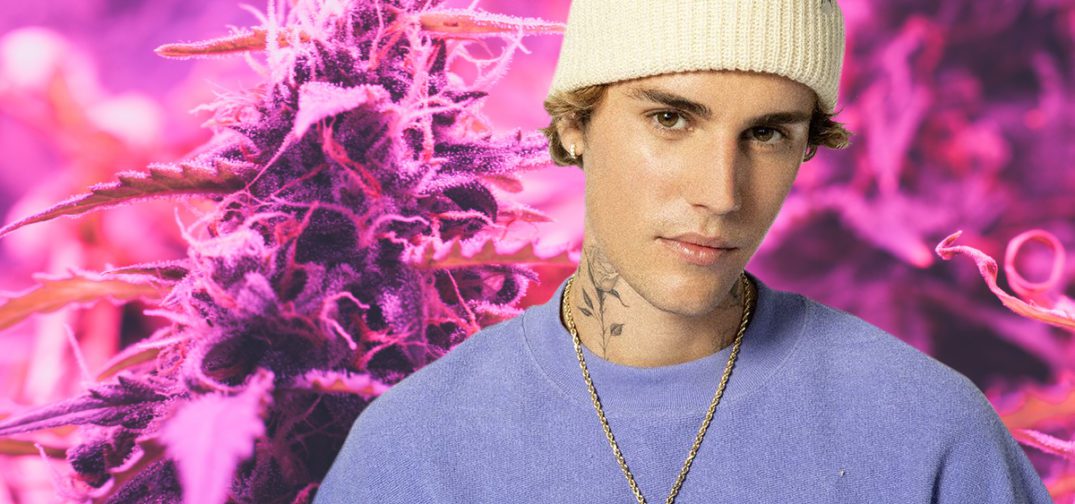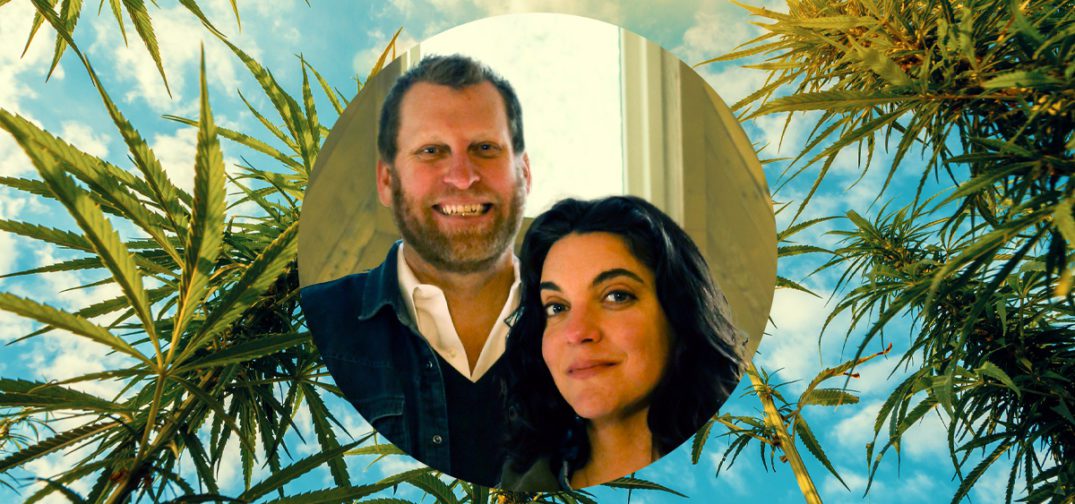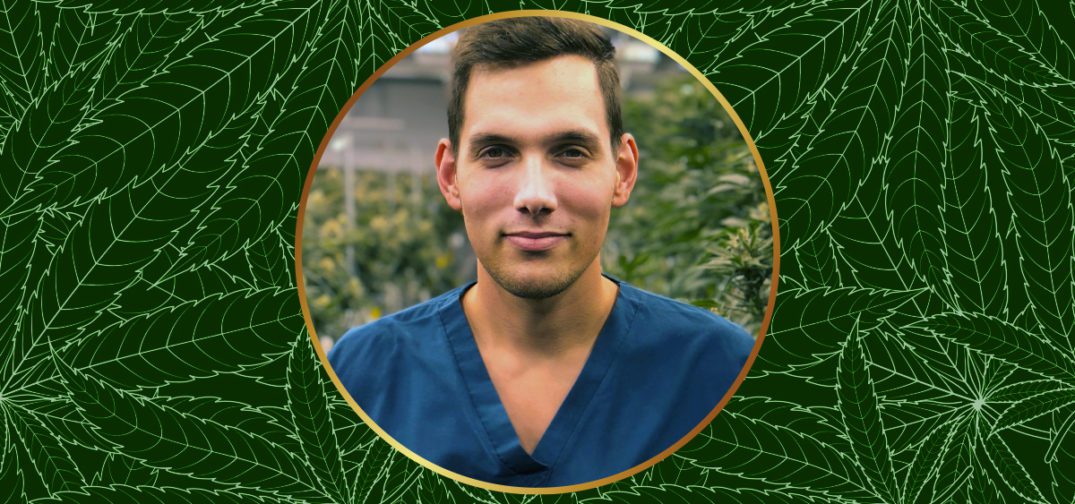With nearly one million medical cannabis caregivers licensed in the state, Michigan is an often undersung hub of cannabis culture, cultivation, and industry expertise.
In an interview covering entrepreneurship and the Michigan marketplace, our podcast host TG Branfalt recently connected with Joseph Ori, a career lawyer and entrepreneur who co-founded Michigan’s Six Labs. In the following episode, Joseph discusses his pivot to the cannabis space, the company’s scientific approach to cannabis cultivation, and the advantages of working with a versatile team. The interview also covers Six Labs’ brand-building process, their prioritization of experience-focused cannabis products, and more.
Check out the full podcast episode below! You can also scroll further down to find a full transcript of the interview.
Listen to the podcast:
Read the transcript:
Commercial: This episode of The Ganjapreneur Podcast is made possible by AROYA, a comprehensive cannabis production platform for commercial growers. If you are a commercial cannabis grower, you can use AROYA to level up your production workflow. Featuring a combination of precision instruments and powerful software that help you intelligently cultivate dry and process cannabis, the AROYA cannabis production platform is your ticket to greater yields and consistent quality. Request a quote today online at aroya.io. That’s A-R-O-Y-A.io.
Cara Wietstock: Hi, I’m Cara Wietstock, Culture Editor at Ganjapreneur and host of our YouTube show. Fresh Cut. The best way to understand cannabis business is to speak directly to those who work within it, and Fresh Cut was created to shine recognition on the people who fill these roles. In this interview series, we focus on those with their hands and the dirt, both literally and figuratively, from cultivators to budtenders, educators to advocates, activists to lobbyists.
We aim to illuminate the workers who keep this industry thriving. Enjoy one-on-one conversations with me and guests by watching along on the Ganjapreneur YouTube channel and follow our social channels to keep up with the latest episodes. Have a great day.
TG Branfalt: Hey there, I’m your host, TG Branfalt, and thank you for listening to the Ganjapreneur.com Podcast, where we try to bring you actionable information in normalized cannabis through the stories of ganjapreneurs, activists, and industry stakeholders. Today, I am joined by Joseph Ori. He’s the co-founder, General Counsel, and Government Relations for Six Labs, one of Michigan‘s largest craft cannabis cultivators with a complete focus on quality and precision and a passion for advanced research development and technology. How you doing this afternoon, Joseph? A pleasure to have you.
Joseph Ori: I’m doing great, TG. Thank you for having me. Really appreciate it.
TG Branfalt: As a lot of our listeners know, I actually spent a year in Detroit. I love the city. I was there when they legalized cannabis, but was not there when they actually started sales. I did go to a Cannabis Cup there, which is a story for another day that has been posted to the website, but before we discuss Six Labs and craft cannabis, which is really exciting, tell me about yourself, man. You obviously wear many hats for Six Labs, so tell me about what you do there and your background. How’d you end up in the cannabis space?
Joseph Ori: Well, the cannabis space sort of called out to me, I think, but I have a background. I played sports competitively my whole life, and most of it was spent playing football toward the latter part of my teens, and then I ended up playing college football and I actually ended up with two back surgeries while in college. Back in the ’90s, they were giving out Percocet and Oxycontin like it was candy and we, obviously, didn’t know any of effects of those substances and the addictive quality. I was one of the lucky ones because I didn’t react well to them and I was in an extreme amount of pain all of the time. I mean, I’m talking back since I was… I don’t want to date myself, but since I was 20.
I stumbled upon cannabis in college and, you know… Whereas, most people were using it just recreationally to have some fun. I started to notice that it was mediating my pain. Whereas, you drink alcohol and I’d feel like shit the next day. I mean, I was completely dehydrated. My back would kill me even more. I’d worry it was cannabis. It wasn’t, so I became sort of self-medicating myself over the years. Then, as this industry grew and they started to actually acknowledge that there were medicinal qualities and sort of at the same time the parabola was going downward for opioids and all of the negative exposure that they rightly received, I said, “I’m a believer in this.”
The opportunity presented itself to… You know, I’ve been an investor in cannabis separately before Six Labs, and so an opportunity presented itself that Six Labs, I’m sorry, that Michigan was opening up to a new set of rules and they were going to open up larger cultivators and go recreational legal, and my partners and I saw an opportunity. We bought some land out there and we got it approved locally. We raised tons of money and got this thing off the ground. We’re all in our… The challenge we had was… I tell people this a lot is that we’re all in our 40s, so we’re seasoned businessmen, and one of the things that comes with that is that you know what you’re doing, how to run a business, and by that point in time in your life you know some people who’ve got some wealth.
We were able to raise money and we were able to put together this company relatively easy in the sense that we all had a role. The challenge was that once it started to take off, we all had to leave our careers. My main bread-winning background was that I’m a trial attorney for 25 years and I’m also, again, a restaurateur. I’ve owned record labels, been a sports agent. I’ve done a lot of things in my life, but this was basically saying, “Okay, you have to sort of take a step back from what we’re doing every day.”
My law firm, I’ve had to put some people in place because I’m the founder and owner of that law firm, but I’ve had to put some people in place to sort of help me out and bring some younger attorneys up and make them partners and share the piece of the pie, so to speak, so it’s been a journey. I mean, it’s exciting and we’re really happy with where we’re sitting right now, but obviously, we say that in cannabis every year is like a dog year, I mean, every month is like a dog year, so we’ll see how it goes.
TG Branfalt: No, I mean, this is a really incredible journey. Going back a little bit, you said that you were an investor in cannabis companies before you launched your own. Tell me about the… maybe not the companies that you invested in per se, but what drew you to those companies in that early stages.
Joseph Ori: Well, so what happened was is that Illinois got in the game. I’m not going to say they were the first ones, but the medical aspect of cannabis in Illinois was pretty early on. I was approached by several entities that was a couple of which are massive companies now and trying to get me to invest in their company, which I did. Then, I got approached by some other groups that actually wanted to do what we did, which is actually take a role in the company and get it off the ground and get licensed in Illinois and sort of see where it took you.
I at that point in time was too ingrained in what I was doing professionally as a trial attorney and I had some very… I represent people who can’t represent themselves, so I do catastrophic injury and I represent a lot of people who would never be able to pay me if they had to. I work for free unless I win, representing infants that are injured at birth and things like that and construction workers who are severely injured on the job. And I was ingrained in a lot of big cases. I couldn’t walk away.
I kind of had that itch back then, and then sort of as I found myself five, six later with this opportunity in Michigan, it just made sense to do that at that time because I had surrounded by partners. My partners are guys I’ve known for many, many years and it was really odd because one of the things as an entrepreneur as I’ve learned is it’s one thing to have a great idea.
It’s one thing to have a great plan and to get funded, but to have yourself surrounded out of the gate with people who you know and you trust… Also, I mean, if I tell you this you probably wouldn’t believe it, but so what do you need to run a business? You need, well, we need an attorney. You’re going to build something, you need a builder. If you’re going to have finances, you need an accountant. If you need operations, you need a guy in those operations.
Well, all five of my partners, my other partners, had these. One of my partners is a certified accountant. He’d had a background in banking. I’ve got another partner who was a builder and left his career as a builder to [crosstalk] build our facility. We’ve got other guys who fell into place that were also key critical roles in the company, so we didn’t really have to go outside of us to sort of have at least the nuts and bolts of building a business.
Now, learning cannabis space, totally different animal, and we needed to bring in the right people to sort of roll the cannabis and know what the market was. Funny thing is we have most of our partners are in our 40s. I actually turned 50 recently, but we have a young guy who’s like 30 years old. He started with us when he was 27 and he’s our cannabis guy, you know, so [crosstalk] he’s our cannabis expert.
TG Branfalt: When you were searching for that cannabis guy, was the majority of the people younger?
Joseph Ori: Yeah, so one of the things that we learned right out of the gate, and this goes along with some of the things you and I were discussing before the podcast just separately, the image of this industry has changed. We started going out to find head of cultivation and head flower managers and veg managers. We first went and what we did was an immense amount of due diligence. Before we even stepped foot into this industry, we toured all over California, Colorado, Oregon. We went to… We knocked on doors. We went into all the facilities we could get into, the cultivation facilities, crossing facilities, dispensaries. We wanted to know what was working and what wasn’t working.
I’m not going to name any names, but we saw some pretty deplorable situations out there and we said, “Okay, so how are we going to separate ourselves from all of these people?” We took notes and said, “Okay, these are the things that seem to be working, and then let’s look at where the new frontier is going to be in this industry.” One of the things we were leaning toward was possibility, still exists, of the federal government legalizing it. We thought, “Well, if the federal government legalizes it and the FDA gets involved in as much as it addresses the medical side of this product,” I don’t even know if we call it a product, I guess we can call it a commodity, “Then, we’re going to have to meet certain standards.”
We basically said, “Let’s build a facility that’s forward-thinking and it may cost us more money than we want and most of these other facilities would cost us, but let’s build it with forward-thinking technology. Let’s build it. It could be retrofit with futuristic technology if need be.” That’s what we did. We did an extraordinary amount of homework and to be able to create and… I brag about this because we haven’t been told anything differently. I mean, we have people come through our facility from other states and guys who know cannabis way more than the five of us when we started out, we’ve been in the business for 10 years or so, they’ve never seen anything like our facility. We continually get these accolades from people.
It’s helped us because we’ve landed some big licensing deals just based off of our operations and the way our facility appears. We’re saying basically, to sum it up is, if the FDA gets involved and our cannabis doesn’t pass whatever those regulations may be, then no one else’s is, and we said, “So that’s what we wanted to do,” and then [crosstalk] you know, that’s what we’re trying.
TG Branfalt: To your point with the FDA, I mean, I’ve always sort of maintained that everyone’s, “Oh, we want federal legalization,” but I believe that they’re just going to make it more onerous and a much sort of harder for current operators in states because federal regulations are going to be far behind those of the states at that point.
Joseph Ori: Yeah. I think it’s really odd because I thought maybe with this new administration there was going to be a major push right away to do something and it’s a little bit lagging more than I thought it was going to be. What I thought it was going to be, you know, federal legalization, I think what they’re going to do is just they’re going to ultimately reschedule it and they’re going to leave it up states to do what they have to do, what they’re currently doing, which is allowing their inside operations, the companies that are in their state, to build their industry. Then, I think it will be somewhat like… The real question will be interstate commerce, you know?
TG Branfalt: Yeah.
Joseph Ori: If you have Illinois, which is weird because we’ve actually talked about this, so we have Illinois and Michigan, but we’re not contiguous except unless you cross Lake Michigan. You have to go through Indiana to get to Michigan-
TG Branfalt: Yeah.
Joseph Ori: … and Indiana’s not, you know, not going to go legal anytime soon. We’re like, “Okay, if we open up interstate commerce, are we’re going to be able to cross over into Illinois through Indiana? Or can we take boats across Lake Michigan and go to Illinois and sell product? I mean, those are legitimate questions that-
TG Branfalt: Yeah.
Joseph Ori: … we have no idea, you know, what what’s going to happen because barring true federal legalization where they just say, “Okay, we’re taking over control of this and here’s what’s going to happen,” you don’t really know how it’s going to play it’s self out.
I mean, alcohol sales have been largely kept outside of federal preemption. I’m not trying to get too legal with you, but federal preemption basically says federal laws preempt state laws. Now, there’s been exceptions to that. One of those has been alcohol. If you compare cannabis to alcohol, at least from a recreational standpoint, it would follow that they’re going to leave it up to the states. This state says it’s 18 years old, that state says it’s 21, this state has restrictions on… and local municipalities on what can be sold, what times it can be sold, who it can be sold to and when and where. It still looks like it’s always going to be maintained within the confines of each state, at least from my perspective.
TG Branfalt: No, and they’ve done the same thing with cigarettes now in New York. It’s 21, so to your point, I do want to sort of switch gears a little bit and talk to you about sort of craft cannabis. Tell me how Six Labs and yourself defines craft cannabis.
Joseph Ori: That’s a great question, so it’s not synonymous with top shelf cannabis. Craft cannabis, we feel, is defined by four qualities, which is smell, flavor, experience, and appearance. Top shelf, usually we say the top shelf cannabis has to have at least high, high rankings on three of those fours. Whereas, craft cannabis, we’ll have all four of them. The most important one, I think, is experience, and there’s other distinguishing features that will make craft cannabis separate itself from top shelf, which is the terpene profiles, the potency, the cannabinoid profiles, and tolerance. When you get into tolerance is where I really think the difference is, is craft cannabis we say is like a craft wine. It’s got different features.
Now, what we try to do is we say, “If you can create batches of cannabis that are consistent in smell, flavor, appearance, and most importantly experience, and also try to create profiles that will keep the user from growing a tolerance to it,” so meaning if you take it… if you are an edible fan, you’re taking a 10 milligram edible that’s from flower. It’s born of flower that it was craft flower. Or, you smoke a half gram pre-roll. Are you going to get the same effect and the same level of experience today as you will six months from now? Or, are you going to have to start smoking a whole gram? Or are you going to have to take two edibles?
We’re trying to… We’re basically saying the craft cannabis is always going to be, we believe, that it always will be special. It’ll always have its own place, so what we kind of set out to do is said, “You know, we’re going to try to spend and we have the ability with our facility to do that. We’re going to try to make craft cannabis at a larger scale. We’re going to try to compete with the guys who are making… who have a 3,000-square-foot grow or 5,000-square-foot grow, focus on a couple of strains and say, ‘This is the craft cannabis, the best quality that you can possibly have.”
We said, “We’re going to try to do that in a larger scale. We’re going to get that much attention. We’re going to give it that much time, energy, and create a climate and an environment where we can do that at a larger scale.” It’s very challenging. We’re trying to make it precise and as clean as possible, and precision is the main goal of our company.
TG Branfalt: You’re the first person that I’ve ever spoken to who put such an emphasis on experience. When you have these conversations with people, which you must do in order to be meeting these sort of goals, when you ask them, “What experience are you looking for?”, something like that, what’s the response that you get most often?
Joseph Ori: I guess to answer that question, it’s like if you’re at a dinner party and you’re with some friends and the subject of cannabis comes up, you’re likely not talking about strain names because it gets confusing. One of the things, and I can say this, I’ve been a customer for years and I was like, “Okay, what does this even mean?” It’s basically trying to say, “Okay, do we have the ability right now to say that you will have this specific experience from this strain?” No, and what we’ve learned, too, is that sativa, indica, and hybrid is really… There’s no true sativa [inaudible]. Everything is sort of a hybrid. There’s no true indica.
To say, “Okay, well, one’s going to kind of make you sleepy or tired and chilled out, the other one’s going to give you energy, will allow you to maybe focus better,” just based on strain is not really the truth. What they’re realizing is the entourage effect of certain levels of terpenes and ratios of cannabinoids. THC is not necessarily the main thing. It’s like it’s still I see that there’s… You can grow THC, high-potency THC product and you’ll get tons of money for it even at the wholesale level. Everybody wants 28%, 30%, and I don’t think that this industry’s moving toward that. I think it’s moving away from that. I think, you know-
TG Branfalt: Right.
Joseph Ori: … people don’t want to get blown out of their minds necessarily. They would prefer to have an experience, so while we can’t say that we have reached the point where I can tell you, “Hey, buy this and you’re going to feel this,” I think that what we are moving forward and we’re working on a product line that’s coming out.
We’re a house of brands, so we have five products and we’re working on a sixth. One of our products we’re saying is going to be geared toward allowing you to select it based on what you want to do and to heighten that experience. If you’re going to go… If you want to be creative, we’re going to say, “This is going to help you be more creative. If you want to just chill out and watch a movie and not think, then this, this a strain… this is a product, not a strain, but this is a product that will heighten that experience. If you want to explore, this is a product that will heighten that experience.”
Frankly, I think that there’s something to be said for the possibility that there would be heightened sexual experiences with certain products. What we’re trying to do is not tell because you can’t, I don’t think you can yet, like you tell the end user, “You are going to feel this way,” every single one of them. I do think that we’re at the point where we can say that, “If you’re going to do this occasion-based, occasion-based, this is the product. You will have a better time doing this with that.” That’s what we’re aiming for.
TG Branfalt: How do you R&D this, man?
Joseph Ori: Well [crosstalk] so you do… You know, you test it on your many employees. You sample a product. That’s what we do, and it’s not just simply that. We’re… Israel has got a lot of research that comes out of there. They’ve very, very passionate about it. More toward the medical, I’ll be honest, but-
TG Branfalt: Yeah.
Joseph Ori: … but you learn a lot from the medical that you can garner and sort of follow the process of if you have a particular strain that is more leaning towards sativa and you can combine the terpene profiles and the CBD ratios because those work against each other, and you can combine them together and consistently grow it with that ratio. You’re going to… Like I said, you may have eight out of 10 people who use it and say they had a bad experience, and to be fair, it’s like, okay, when I gave you my example with my opioid experience, I’m one of… They’ll give you a million things what the drug can do to you. Most people are just going to feel what it’s supposed to, and they didn’t tell you that a vast majority of people become addicted, but they also… Some people just don’t feel well and some people have nausea and vomiting.
I don’t think there’s a single substance out in the world that’s even been tested and approved by the FDA that can guarantee a specific feeling, but if you can do it to the extent where there’s a vast majority of expectation, that you’re likely to have this sensation when you utilize this particular product and you can rely on that and it works for you. I mean, let’s face facts. The one beauty is that I think I read something recently that there’s still not a single account of anyone dying from overdosing on cannabis.
TG Branfalt: Yeah. No, it’s basically impossible.
Joseph Ori: Basically impossible, so you may have to try it and you may have to go out and buy it and say, “Okay, well, hey, Six Labs is telling you they’ve got this line of cannabis out here and this is what this is for your occasion-based.” You say, “I’m going to try it.” We think your result will be satisfaction. I think that’s we’re aiming for,
TG Branfalt: Moving things on a little bit, when I said at the top I’ve been in Michigan and it was still medical and I went to a Cannabis Cup and I did get blown out of my mind by somebody with dabs. To your point, I do think that we are moving away of that sort of high-test stuff. I’m a guy who’s been smoking… using cannabis since I was 15, 16 years old, and now I much prefer five-milligram, 10-milligram edibles. Either I’m getting old or I don’t like to be as fucked up anymore.
Then, they legalized in 2016 the first Midwestern state to legalize recreationally. Obviously, they didn’t get up and running before Illinois because Illinois just… Pritzker was like, “We’re doing this, we’re going it now.” Tell me about Michigan’s industry seven years after voters have approved the reforms. Is it where people think that it should be as an operator? Is it a satisfactory business climate?
Joseph Ori: You know, that’s a tough question to answer and is broad of a term. Legal cannabis particularly in Michigan has in the initial stages struggled under the weight of pressure of scaling cultivation and led to quality issues on the larger cultivation level, which allowed caregivers to sell to dispensaries directly because they were the only ones who were making cannabis, creating cannabis that was available and that could be used.
It took a while to get the cultivators up and running, the larger cultivators, and the entire sector was slow to deliver the results that they expected. A lot of it… I think at one point in time not so long ago, about 70% of the larger cultivator cannabis wasn’t passing testing, so [crosstalk]-
TG Branfalt: 70%?
Joseph Ori: 70, yes-
TG Branfalt: That’s unreal.
Joseph Ori: … so while the challenges were most pronounced then, I think today there’s a difference. It’s different now. THere’s a lot of larger cultivators online. It’s robust competition, but Michigan is like… Nobody understands this, man. Michigan has a long history rooted in cannabis. I mean, you know, when you-
TG Branfalt: Ann Arbor itself, I mean-
Joseph Ori: Yeah. It’s unbelievable, man. It’s almost like California. It’s wild how deep-rooted cannabis use is in Michigan. The funny thing is like we’re being challenged by a black market. There’s the seizures at the border. I give it a little bit of fact. The seizures at the border in 2019 and 20, I’m sorry, in early 2020 to late 2020 increased like 1800%. They were seizing massive truckloads of commercial-grade cannabis at the border coming in from Canada because Canada can’t get their shit straight.
They have so many companies out there that have so much product because they have a huge black market problem that they’re shipping their high-quality packaged goods through the United States, the border of Michigan in Windsor. They’re getting seized and guess what the penalty was in 2020? I don’t think it’s any different, not, man, in 2019. It was $5,000 fine per ton.
TG Branfalt: Per ton?
Joseph Ori: Per ton, so I mean, I like my chances. All right, if I’m up in Canada, I’m like, “Well, you know what?” Nobody was arrested according to these accounts I’ve read and they were just sent back up to Canada and their passports were revoked to come to the United States, so I’ll take my chances all day. That’s what you’re competing with, but you still see the sales going through the roof. We kind of look at it and we’re like, “Man, if they could just,” so it’s like everybody says about 70% is still black market cannabis being sold in, you know, in the United States in general, and then pretty close to that ratio in Michigan.
You’re like, “Okay, if we could just chip away 10% of these people,” and the sales are still robust. Imagine what it would really be. We’re hoping that with education will come people saying, “Okay, we’re going to shift. We’re not going to buy it from this black market dealer down the street. We’re going to buy it from a licensed entity where it’s highly tested, highly regulated and, oh, by the way, this company Six Labs says, ‘Hey, we might have stuff that’s more sensation… more occasion-based for you and you can rely on it and you can always know the consistency and you can always know the cleanliness.'”
That’s what we’re hoping changes, but it’s going to be some time before that changes. We look at alcohol. We’re like, “Okay, after Prohibition, there were still people making whiskey, moonshine.” It took a long time and some government regulation and brands to really come out to do away with that type of mentality. I think we’re a ways away, but it’s growing in the sense that there’s… I mean, I think in Illinois we’re actually waiting for our grow license award, which has been over a year since we had it pending and COVID and a bunch of host-
TG Branfalt: Yeah.
Joseph Ori: … of other issues in Illinois have north allowed us to find out whether we want our grow license here. I mean, their taxes on cannabis, and granted their taxing the hell out of it here, which doesn’t help to fight the black market, either, but in 2020, the taxes of cannabis beat alcohol sales taxes [crosstalk] you know, it’s amazing.
TG Branfalt: Well, I understand your frustration as an operator about the illicit market, but part of the problem is taxes because I can go to my boy down the street, get an ounce for $200. If I go to Massachusetts, I’m dropping 450.
Joseph Ori: Correct.
TG Branfalt: That’s a hard pill to swallow.
Joseph Ori: Oh yeah, so we actually have some friends on the border of Indiana and Michigan, which is really… They only drive through Indiana for about 30 miles to get to Michigan, so from Illinois. You make that turn around the east part of the lake and you’re in Michigan. We had guys who were and still are going taking the drive to Michigan to buy commercial-grade tested cannabis rather than buying it in Illinois because Illinois’ tax is like 40% almost and Michigan’s isn’t that bad. Michigan I think… Actually one of the beautiful things that separates Michigan from a lot of other states is that the tax isn’t as great, so that helps us, but you’re still… If you’re budget conscious, no matter where you’re at, I think you’re doing exactly what you just said.
You’re going to go buy your cannabis to get a higher quantity rather than quality to save yourself some money, and especially if it’s something you’ve been doing for years. The funny thing is, TG, is that I kind of tell people this all of the time. It’s like all the years of consuming cannabis and you’re just like, “Okay, we didn’t know where the hell it came from half the time,” and it was all probably grown outdoors. Who knows what they were using and are still using on it to kill the infiltrates and to get rid of pests. I’m thinking to myself, “Because of what we’re doing indoors, we can control all of the climate. Every single aspect of everything is dialed in.”
It’s still challenging to do it the right way and keep it clean. It’s not like just pushing a button, man. It’s a lot of work. It’s a lot of attention to detail, and so I tell people, “I can’t imagine what was in the shit that we were smoking when we were younger.” I mean, and I went to school in New York City and there was… Who knows where it was coming from? It could have been coming from any one of 10 different places. I can’t imagine that they were caring too much, you know, that Rafael Cantana down in Mexico or somebody out in Humboldt County was caring too much about what they were using to kill the pests. I just… I don’t know.
TG Branfalt: I mean, growing up, for sure, I definitely smoked some mildew-y products.
Joseph Ori: Yeah.
TG Branfalt: When you’re 18, it doesn’t matter what you put in your body anyway, does it?
Joseph Ori: Yeah, yeah.
TG Branfalt: We talked briefly about sort of the history of cannabis in Michigan. We didn’t really get into it, but if I’m not mistaken, Ann Arbor was one of the first cities in the United States to legalize it medically and-
Joseph Ori: Yeah [crosstalk]-
TG Branfalt: … part of the history. Some people have began calling Michigan The Second Emerald Triangle, and so I’m wondering if you could sort of speak to why it’s gotten this moniker?
Joseph Ori: Well, I think, like I said, because of how deep-rooted cannabis has been in the state and there’s been a lot of private growing and there’s 30,000 caregivers who many of them who are very, very highly experienced growers and been doing it for… some, for generations, I think, prior to becoming legal. We have a robust set of strains that can compete with any state and, obviously, we don’t have our enfamed Humboldt County as California has for The Emerald Coast or whatever, but we do have every bit of the competition that California does. I mean, we have… That I would say is one of the greatest features of Michigan which separates it is that because there’s such competition, that the quality of the strains and what people are trying to do and the innovation that’s coming from that is I believe for Michigan at the forefront of the Midwest at a minimum.
I can’t necessarily say that we will overtake California, but I do think that we have a very strong hold on number two at this point based on those factors. I think that as… We’re only a little bit over a year and a half, two years into recreational, the strides that the state has made are amazing compared to other states. I don’t think it’s an unfair moniker to place on it.
TG Branfalt: Do you think eventually it’ll be they may change the name of Detroit from The Motor City to The Canna City or something?
Joseph Ori: I mean, if the car companies continue to do what they’ve been doing over the years, which is pulling out, coming back, pulling out-
TG Branfalt: Yeah.
Joseph Ori: … I think that that possibly could be the case. There’s… One of the things that Michigan has that’s a little strange is that there’s a lot of municipalities that haven’t opted in, so-
TG Branfalt: What’s the ratio there? I know in Maine it’s pretty out of control. It’s like 2:1.
Joseph Ori: Yeah. It’s pretty close to that. I haven’t checked the numbers, but I know that there have been… There’s I don’t want to say numbers because I haven’t checked in a while, but there were some 300 municipalities that still hadn’t-
TG Branfalt: Wow.
Joseph Ori: … opted in. Yeah, and only 200 or so that had. That’s the numbers that stick in my head, but like I said, I don’t want to…
TG Branfalt: Well, I’m sure that also affects the illicit sales. I mean, when you have all these communities that have no access, right?
Joseph Ori: Yeah, exactly.
TG Branfalt: You obviously are really passionate about this. You go from being a successful trial lawyer to being a successful cannabis entrepreneur. What advice would you have for entrepreneurs and especially people who had careers before they decided to enter the space?
Joseph Ori: I write on this a lot and I published some articles recently about different subjects. The first thing I would say is that you’re never too old to be an entrepreneur, and the only thing that the difference is between a younger entrepreneur versus an older one is that younger guys, in their minds they have less to lose. It’s sort of the youthful exuberance of blind, you know, understanding that. I started my law practice the day that I graduated law school and I read a book while I was studying for the bar exam called How to Start Your Own Law Firm and Not Miss a Meal. I read the book and I’m like, “Wow, I could do this. I could do this. I could this.”
Then, I get to the last chapter and the last chapter basically tells you, “Okay, so I’ve been practicing law for five to seven years now. Go out and do it.” I’m like, “Holy shit, wait a minute.” I was because it was basically assuming that you knew a little bit about being a lawyer, that you were going to do that. I was like, “Oh, I was like, “Shit.” I said, “I can’t go do this,” but you know what I said? I said, “Listen, I can figure this out. I’ll out how to be a lawyer along the way.” I went and applied the same equation in how they told you how to go about getting to that point of opening your own law practice. I did exactly what it said, and so in the beginning, I had to co-op a lot with older lawyers who I met and said, “Okay, I’ve got this case. I’ll give you a cut of this if you help me with it.”
I made it work, but I could see how now that same guy is like… If I’m reading that today, I’m like, “Damn, that’s super risky. You know, I’ve got a good job.” I’m like, “Am I really going to be able to pull this off?” When in reality, you have a way better shot at pulling it off because you know about being a lawyer. You actually know how do the cases yourself. A lot of it depends on your risk tolerance, and I read an article the other day in Psychology Magazine about resilience.
Resilience is something that people think is you’re born of it. Sure. Are there some character traits that you might be born with that make you somewhat… give you the ability to be more resilient? Sure, but resilience is based a lot upon your social setting and your surroundings and who you are in bed with, sometimes literally and figuratively. Who is your support group? Who are you surrounded by? Who’s going to pick you you if you fall? Entrepreneurship is an incredibly cool concept and everybody wants to talk about it, but the reality is is that you have to be able to pivot, man.
That’s the one thing that I will tell you, anybody who’s doing it. If you have a plan, you say, “This is my plan. This is what I’m going to do. This is what the book said.” Shit doesn’t go that way, man, and if you don’t have the ability to say, “Okay, that didn’t go exactly how they book said it was going to go. I’m going to figure it out, though.” If you don’t have that ability, if you’re somebody who’s just linear, you’re going to have a tough time being an entrepreneur because very, very rarely, and I’ve yet to see anyone who says, “I read the book. I applied what it said, and it worked out exactly how it said it was.”
You have to be able to be resilient and you have to be able to pivot, and if you’ve got those qualities and you’re not afraid to lose and to pick up the pieces and try to keep it going, then you’re built for it. That’s what I would tell people.
TG Branfalt: I… That’s really, really great advice, man, and you can just sort of tell even before you read the book when you get injured playing football and that doesn’t really work out and you still end up going on to be successful. I mean, being an attorney and then a sports agent and all of these sort of things. I mean, it’s a really, really incredible story and I’d like to definitely get into those details with you at some point a little bit more, man.
I really thank you for sharing your story, and I know that we may not have gotten… talked too much about craft cannabis as it were, but it’s a really incredible story and I loved having you on the show and appreciate you coming on. Where can people find out more about you and more about Six Labs?
Joseph Ori: Just go to @sixlabscannabis and we have all of our updates. We have several brands that are out right now. We have Six Labs Flour we sell direct. We have Candela, which is a line of solvent lists concentrates that we recently just won the Michigan Cannabis Cup. We have MI6, which is your no frills quality brand available in larger quantities. Popcorn and shake. You can get strollers, which are mini, mini high-quality pre-rolls that are smaller than your average one, because that’s why they’re called stroller. Or, if you take a little walk on the beach or walk your dog. We definitely thought that’s the perfect one where you can actually smoke the entire thing and finish it-
TG Branfalt: Dog walkers.
Joseph Ori: … and yeah, yeah, dog walker. In fact, with… Then we have… We’re working still to bring out what we discussed earlier, which is ritual, which would be the occasions/sensation-based. We’re hoping to have that to the point where we can say, well, what discussed earlier that you can rely on this giving you this for this particular occasion.
That’s where we’re at and, you now, obviously, six-labs.com and, obviously, six-labs.com. I’m on Twitter and Facebook and LinkedIn and all those places. I publish a lot of articles. I do a lot of these podcasts. So hopefully your listeners will start following us.
TG Branfalt: That’s Joe Ori, man, and really, I appreciate you coming on. I had planned to make it back to Detroit one day and we’ll definitely take it… Be on the lookout for the lockout for the dog walkers, especially-
Joseph Ori: Yeah, sure
TG Branfalt: … that dog likes to walk.
Joseph Ori: Well. Yeah, for sure, and if I make my way up skiing in the Lake Placid area, I’m going to definitely hit you up.
TG Branfalt: Oh, it’s a… Then, by the then, cannabis should be completely legal and what I grow in my backyard is no longer a crime. He is Joseph Ori, the co-founder. General Counsel and Government Relations for Six Labs, one of Michigan’s largest craft cannabis cultivators with a focus on quality and precision and an obvious passion for advanced research, development, and technology. Joseph, thanks again, man. We’ll talk soon.
Joseph Ori: All right, TG. Thank you, buddy. Thanks for having me. Bye, bye.
TG Branfalt: You can find more episodes of the Ganjapreneur.com Podcast in the podcast section of Ganjapreneur.com on Spotify, and in the Apple iTunes store. On the Ganjapreneur.com website, you’ll find the latest cannabis news and cannabis jobs updated daily, along with transcripts of this podcast. You can also download the Ganjapreneur.com app in iTunes and Google Play. This episode was engineered by Trim Media House. I’ve been your host, TG Branfalt.

